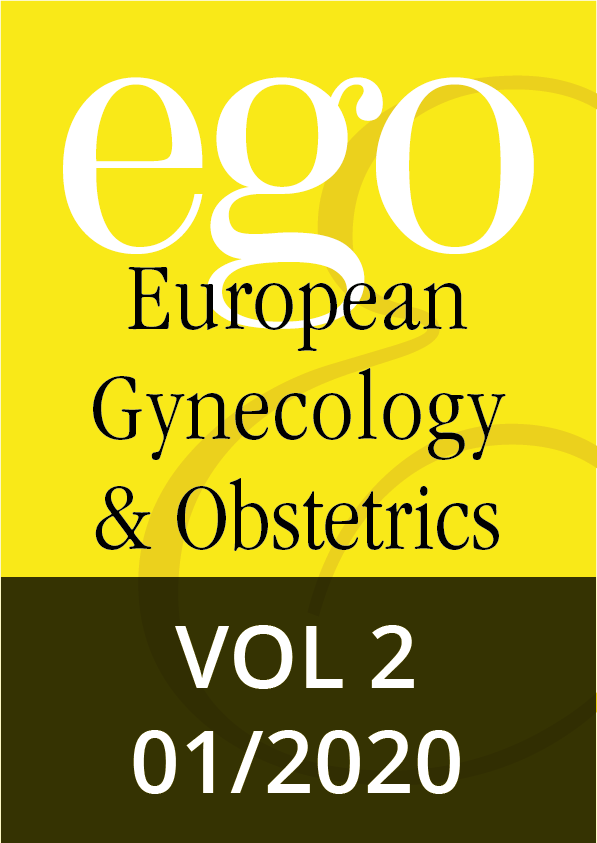Short reviews, 005–009 | DOI: 10.53260/EGO.202012
Short reviews, 016–021 | DOI: 10.53260/EGO.202014
Systematic review, 022–029 | DOI: 10.53260/EGO.202015
Systematic review, 030–035 | DOI: 10.53260/EGO.202016
Original articles, 036–041 | DOI: 10.53260/EGO.202017
Original articles, 042–046 | DOI: 10.53260/EGO.202018
Original articles, 047–049 | DOI: 10.53260/EGO.202019
Original articles, 050–055 | DOI: 10.53260/EGO.2020110
Original articles, 056–061 | DOI: 10.53260/EGO.2020111
Original articles, 062–067 | DOI: 10.53260/EGO.2020112
Mitochondrial DNA diseases: preimplantationdiagnosis and intervention possibilities
Abstract
Mitochondrial DNA mutations are exclusively maternally inherited and can cause severe diseases for which there is no effective treatment. The recurrence risk of mitochondrial diseases is difficult to estimate due to heteroplasmy and the bottleneck effect during oogenesis. Here we review the literature on current options for preimplantation genetic diagnosis and interventions to prevent mitochondrial disease transmission.|
Preimplantation genetic diagnosis can be performed in different developmental stages of the oocyte or the zygote. Preimplantation interventions consist of nuclear transfer, a set of techniques in which the patient’s nuclear genetic material is placed in an enucleated donor cell, or genomic edition, through which the mitochondrial genome is altered. These methods are associated with technical barriers, such as ensuring the representativeness of the analysed sample when applying preimplantation genetic diagnosis, maintaining the communication between nuclear and mitochondrial genomes when using nuclear transfer, and avoiding off-target modifications when genome edition is the choice.|
Although much has already been accomplished, further research is required to reduce the risk to the offspring and to develop more efficient and safer techniques.
Keywords: Assisted; Gene Editing., DNA, Mitochondrial; Mitochondrial Diseases; Preimplantation Genetic Diagnosis; Reproductive Techniques
Citation: Alexandra Martins De Carvalho M.,Teresa Moreira De Almeida Santos A., Mitochondrial DNA diseases: preimplantationdiagnosis and intervention possibilities, EGO European Gynecology and Obstetrics (2020); 2020/01:016–021 doi: 10.53260/EGO.202014
Published: January 1, 2020
ISSUE 2020/01

Short reviews, 005–009 | DOI: 10.53260/EGO.202012
Short reviews, 016–021 | DOI: 10.53260/EGO.202014
Systematic review, 022–029 | DOI: 10.53260/EGO.202015
Systematic review, 030–035 | DOI: 10.53260/EGO.202016
Original articles, 036–041 | DOI: 10.53260/EGO.202017
Original articles, 042–046 | DOI: 10.53260/EGO.202018
Original articles, 047–049 | DOI: 10.53260/EGO.202019
Original articles, 050–055 | DOI: 10.53260/EGO.2020110
Original articles, 056–061 | DOI: 10.53260/EGO.2020111
Original articles, 062–067 | DOI: 10.53260/EGO.2020112
